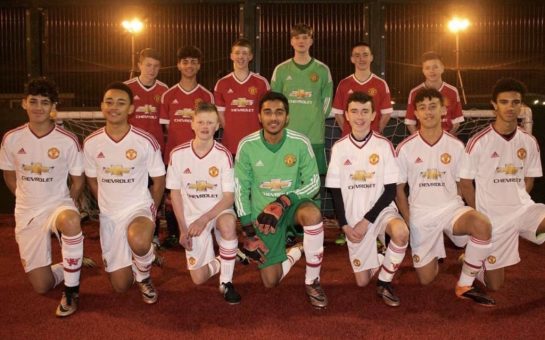England’s insipid early exit from their Rugby World Cup is inevitably going to be the catalyst for endless recrimination.
The blame-game is not going to make pretty viewing, but it is likely that the landscape of English rugby will look significantly different upon its conclusion.
Could Stuart Lancaster and Chris Robshaw, coach and captain respectively, have done anything differently to make a success of a tournament in which failure was not supposed to be an option?
Most would say that they could have done a lot.
Lancaster’s refusal to select those plying their trade outside of England – such as Steffon Armitage, a number seven who’s jackaling prowess rivals that of Australian masters Michael Hooper and David Pocock – was at least consistent, unlike the identity of the 15 players who have made it onto the pitch under his reign.
Injury and disciplinary issues kept four of the players closest to world-class level in the shed against Australia, with Courtney Lawes and Billy Vunipola picking up injuries in the Wales defeat, and Dylan Hartley and Manu Tuilagi not making the squad due to behavioural indiscretions.
Lancaster made some odd decisions with his squad, with the selection of Sam Burgess and Henry Slade over established centres Luther Burrell and Billy Twelvetrees generating particular ire from the media.
Burgess’ selection will be debated for years to come, but the fact is that Lancaster and his lieutenants saw something in the battle-hardened Rugby League convert that excited them.
The selection of Slade has been discussed less, but is infinitely more irritating, for why take such a talented footballer when it is obvious that his inexperience is not trusted?
Twelvetrees have often been inconsistent in an England jersey, but he has affected games from the bench before, and his distribution from 12 would have helped England to harness the potential of the electric Jonathan Joseph, and their exciting back three.
Whether Lancaster and Robshaw – whose deficiency at the breakdown was cruelly exposed by Australia on Saturday – remain or not, the future of this particular England side is still bright.
Locks Lawes and Joe Launchbury were forming a formidable partnership before the latter’s injury, from which he barely recovered in time for the World Cup, and at 26 and 24 respectively they will be reaching their prime when Japan host the tournament in 2019.
Similarly, Vunipola could develop into a back-row behemoth, Joseph and Tuilagi looks like a dynamite centre partnership on paper, and wings Jonny May and Anthony Watson can only improve with experience.
Perhaps Lancaster’s biggest failing is that in four years, he has failed to create a developed, experienced, settled side, with this current crop still resembling a work in progress.
If the axe is to drop for the 45-year-old, one gets the feeling that the squad he leaves behind will fill his successor with a certain level of excitement.
– – –
Brendan Rodgers’ sacking at Liverpool has felt like an inevitability for the best part of the last year, but even so, its timing comes as a complete shock.
For Fenway Sports Group – Liverpool’s American owners – to pull the plug on the Northern Irishman this early in the season, they must have had serious misgivings about his suitability to the role before the campaign began.
And if that was the case, why did they back him to the tune of £80million in the summer?
FSG had two options in the summer: cut their losses with Rodgers and give his replacement the chance to build his own squad with an £80million transfer kitty or back Rodgers and give him a fair crack to make his new acquisitions work.
Unfortunately for Liverpool fans, it would seem that they have done neither adding Roberto Firmino to the list of potential transfer mishaps in the process.
The Brazilian arrived from the Bundesliga with a burgeoning reputation and a £29million price-tag, but has failed to impress thus far, and it is difficult to envisage where he fits into Liverpool team that looks strongest with wing-backs, two strikers and Philippe Coutinho given free reign.
Rodgers will feel himself hard done by, especially because he only managed to field £32.5million signing Christian Benteke alongside fit-again goal machine Daniel Sturridge once.
Whoever lands the job – be it ex-Borussia Dortmund eccentric Jürgen Klopp or experienced Italian Carlo Ancelotti – will inherit a squad in need of major surgery, but of which large things are expected regardless.
Jordan Henderson progressed last season, but a midfield of him, James Milner, Lucas Leiva and Joe Allen is rather pedestrian, whilst Jamie Carragher has never been adequately replaced.
That Rodgers failed to solve these problems ultimately led to his demise.
But that that demise has come now can only be chalked up as a failure by FSG, and a disservice to the club that they own.
– – –
There have been some remarkable feats of goal-scoring in Europe’s top leagues so far this season, with strikers in England, Germany and Spain wreaking havoc almost at will.
Sergio Aguero became just the fifth player in Premier League history to score five in one match as he put Newcastle to the sword on Saturday, whilst Alexis Sanchez has needed just one more game to score the same amount, after he notched a double in Arsenal’s demolition of Manchester United yesterday.
The first Der Klassiker of the Bundesliga season ended in a 5-1 victory for Bayern Munich, with Robert Lewandowski extending his recent form to 12 in four, whilst Pierre-Emerick Aubameyang’s consolation for Dortmund means he has netted in the all eight games of the domestic campaign so far.
Add to these feats the genius of Cristiano Ronaldo and Lionel Messi at Real Madrid and Barcelona respectively, and the maverick excellence of Zlatan Ibrahimovic in Paris, and it is fair to surmise that the standard of attacking quality in European football right now is exceptionally high.
What it also points to though is a scarcity of defenders.
Looking around world football, it is difficult to point out any truly world-class centre-halves, with the a generation of warriors such as John Terry, Nemanja Vidic and Carles Puyol being replaced by defenders who prioritise playing football over keeping clean sheets.
If proof is needed that the art of defending is on the decline, look no further than Leicester City’s Jamie Vardy.
The 28-year-old was plying his trade in non-league football until 2012, and is not what most would call a top-class forward, despite Roy Hodgson’s unusual decision to hand him an England debut in June.
However, the Yorkshireman has seven goals already this term, with six coming in his last five games, as Leicester have exploited many teams’ weakness in dealing with a reasonably quick striker, and a long ball over the top.
Vardy’s high work rate and aggressive demeanour have proved enough to unsettle most teams Leicester have faced this year.
One can’t help but feel that if he was asked to play against Steve Bruce and Gary Pallister, the striker would not quite have the same effect.
Follow Andy on Twitter @AndyDonleySport.
Image courtesy of World Rugby, via Youtube, with thanks.



